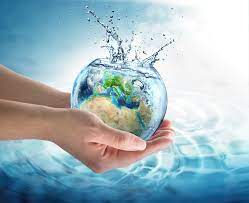The High Cost of Cheap Water : WWF’s Report

The WWF’s report, titled “The High Cost of Cheap Water,” warns of a growing global water crisis that poses a threat to $58 trillion in economic value, food security, and sustainability.
- The report, released on World Food Day (16th Oct), presents the first-ever annual estimate of the economic value of water and freshwater ecosystems
Major Findings Report:
- A global water crisis is mounting, posing a threat to $58 trillion in economic value (about 60% of the World’s GDP), food security, and sustainability.
- Water and freshwater ecosystems provide both direct and indirect benefits, with direct economic benefits amounting to over $7 trillion annually
- Unseen benefits of water ecosystems, such as purifying water, enhancing soil health, storing carbon, and protecting against extreme weather events, are estimated at around $50 trillion annually.
- The world has lost a third of its wetlands since 1970, and freshwater wildlife populations have seen an average 83% decline.
- There is a lack of awareness and understanding of the importance of water resources, the report refers to it as water blindness.
- Unsustainable agricultural practices, accounting for over 70% of freshwater use, are a primary threat to rivers and floodplains.
- Excessive fertilizer use leads to diffuse pollution affecting surface and groundwater.
- Climate change disrupts the hydrological cycle and reduces water availability.
WWF:
- The World Wide Fund for Nature is a Swiss-based (HQ: Gland) international non-governmental organization founded in 1961.
- It’s the world’s largest conservation organization focuses on preserving the environment and aims to halt its degradation. WWF runs campaigns like Earth Hour.
- WWF is part of the Foundations Platform F20




